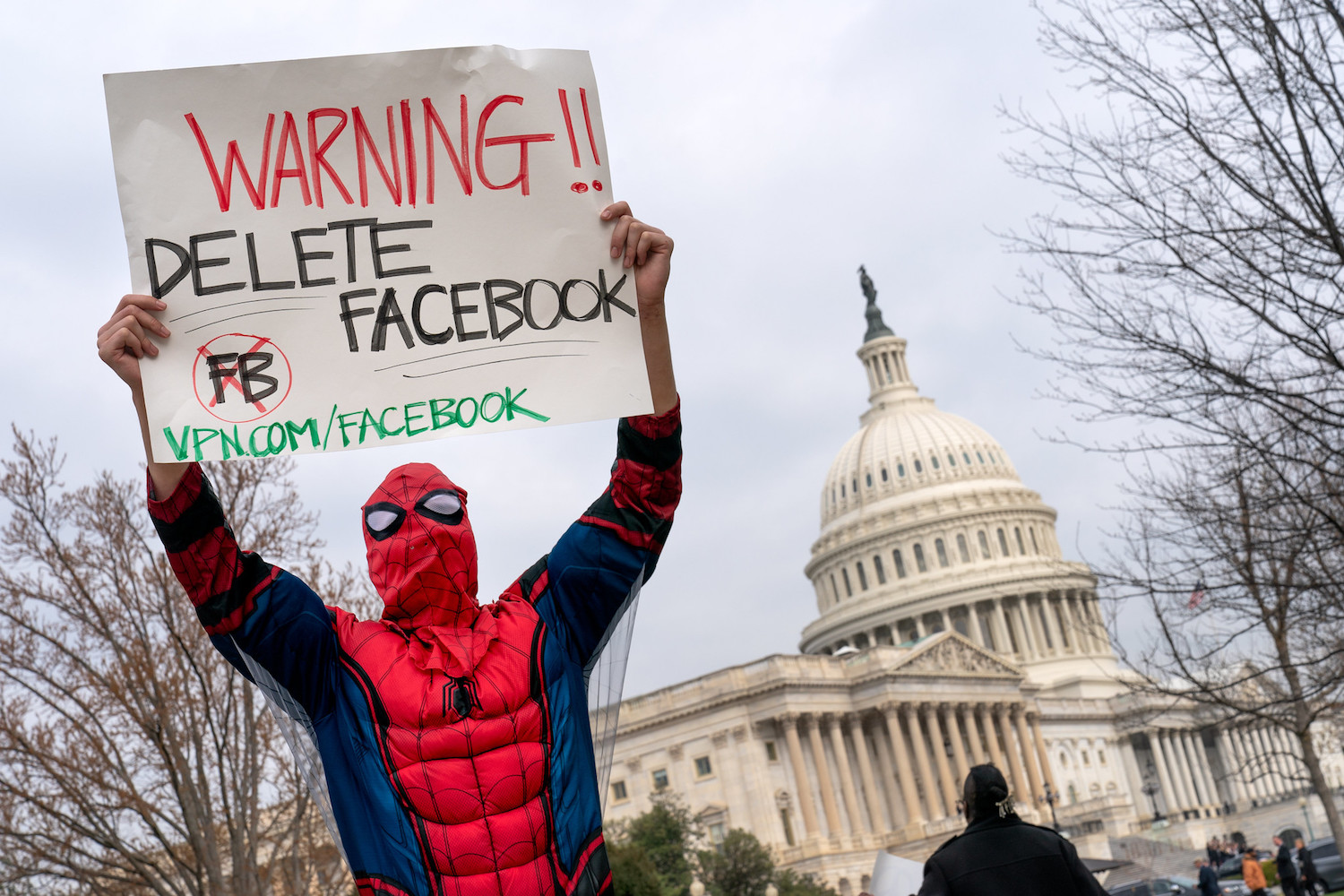A Brief Colonial History Of Ceylon(SriLanka)
Sri Lanka: One Island Two Nations
A Brief Colonial History Of Ceylon(SriLanka)
Sri Lanka: One Island Two Nations
(Full Story)
Search This Blog
Back to 500BC.
==========================
Thiranjala Weerasinghe sj.- One Island Two Nations
?????????????????????????????????????????????????Tuesday, October 27, 2020
Silicon Valley takes on the pro-Palestine left
Zoom's cancellation of an event with Leila Khaled illustrates tech companies' deference to right-wing, pro-Israel demands. But there are ways to fight back.
 |
By Amitai Ben-Abba October 25, 2020
Amid the current deluge of apocalyptic news, Zoom’s cancellation last month of a webinar hosted by a student group at San Francisco State University, featuring Leila Khaled and other Palestinian and Palestinian rights supporters, went largely unnoticed. The move, however, has worrying implications for those of us struggling for an equal and livable world.
The decision to pull the plug on the event came after The Lawfare Project, a right-wing Zionist legal aid group, threatened to take Zoom to court for giving a platform to Khaled, a longtime member of the Popular Front for the Liberation of Palestine (PFLP) who became a symbol of Palestinian resistance for hijacking planes in 1969 and 1970.
“In light of the speaker’s reported affiliation or membership in a U.S. designated foreign terrorist organization, and SFSU’s inability to confirm otherwise, we determined the meeting is in violation of Zoom’s Terms of Service and told SFSU they may not use Zoom for this particular event,” Zoom said in a statement to the The Lawfare Project.
Yet, as Jilian York of the digital rights group Electronic Frontier Foundation told the Lebanese NGO SMEX, American companies have a “First Amendment right to ‘curate’ content however they want” and are not obliged to remove content from “U.S.-designated terrorist groups.” Zoom determines its own Terms of Service and, despite pro-Israel media suggesting otherwise, was not legally required to cancel the webinar.
The event with Khaled was then deleted by Facebook and, briefly after the livestream began, removed by YouTube, in what appears to be another example of Silicon Valley’s propensity for cooperating with right-wing and pro-Israel groups.
The cancellation came on the heels of Facebook’s “accidental” ban last month of environmentalist, indigenous, and social justice pages, as well as its censorship in August of anti-fascist and anarchist pages under the pretext of combatting “violence and hate.” These incidents indicate that growing calls for tech giants to take responsibility for the power they wield by curbing misinformation and racist organizing are instead being weaponized for the opposite ends.
 |
Leila Khaled at the Beirut International Forum for Resistance, Anti-Imperialism, Solidarity between Peoples, and Alternatives Beirut, January 18, 2009.
Given the global COVID-19 pandemic, climate chaos, and the increasing polarization of today’s rapidly shifting political terrain, the Khaled event offers a few key takeaways.
A harbinger of cancelations to come
It should come as no surprise that a pro-Palestine webinar is the first academic event to be cancelled by Zoom. Palestine solidarity advocates have long been doxxed, denied jobs and platforms, and criminalized for calling for Palestinian liberation. Israeli officials, meanwhile, have long exported police tactics, spy tech, and weaponry that have been tested on Palestinians, and the methods they have directed at Palestinian rights advocates may also be used to crack down on other movements and struggles
In Khaled’s case, Israel and its anti-Palestinian allies used institutional means and social media trolling to pressure Zoom to cancel the event. In the aftermath, pro-Israel media framed the cancelation as the rightful deplatforming of a terrorist.
If not held accountable, Zoom and other companies may continue to capitulate to right wing organizations and censor similar progressive events — which is particularly worrying at a time when much academic activity has become reliant on the surging videoconferencing conglomerate.
Discourse subjected to linguistic laundering
The war Israel wages on its critics involves a sophisticated weaponization of identity politics, namely by levying unfounded accusations of antisemitism to silence any censure of Israel. This process empties the term of meaning, even as actual antisemitic ideology and casual Jew-hatred are alive and well in the media and in the halls of power.
Leila Khaled’s case in particular involves a conflict around the word “terrorism,” wherein the term becomes a floating signifier used by each side against the other. Anti-Palestinian pundits and their media outlets call Khaled a terrorist hijacker without giving any context, instilling the impression that she is a Palestinian Osama Bin Laden. Khaled’s supporters contend that, in fact, she is a victim of the 1948 ethnic cleansing of Palestine, a principled socialist and feminist, and a revolutionary exile who was catapulted to fame 50 years ago for leading an airplane hijacking in which no one was injured or killed.
Meanwhile, Israeli officials who ordered the wholesale shelling of civilian populations, authorized snipers to gun down protesters, and are condemning the imprisoned population of Gaza to plague, bombs, and lack of water, are invited to the White House and given platforms at universities.
“Violence,” like “terrorism,” is another floating signifier weaponized by Israel and the right. In its recent update to its censorship policies, Facebook decided to “offline” groups and individuals alleged to be “tied to violence.” In practice, the company banned Antifa (short for “anti-fascists,” a fact pundits like to forget) and anarchist pages alongside far-right conspiracy theorists. This is akin to attempting to ban firefighting along with the fire itself.
Here, “fascism” as a form of political behavior and as a structural shift in state institutions is being normalized, while the term itself is whitewashed by omission. As such, it is becoming clear that while conspiracy theories, fake news, and racist organizing need to be combatted, we cannot count on tech companies to arbitrate them.
We need liberatory technological horizons
Those of us fighting for equality and a livable planet should mobilize our talents to create viable technological alternatives. This does not mean total, purist disengagement, but rather to build autonomous infrastructure and counteract Silicon Valley’s unprecedented influence over the flow of ideas and social legitimacy. Signal, Jitsi, Mastodon, and Kolektiva are examples of alternative communications, social media, and video platforms, but we can aim even further.
 |
A protester dressed as Spiderman demonstrates against Facebook, Washington DC. (Lorie Shaull/CC BY-SA 2.0)
As the Egyptian revolution of 2011 showed, governments can shut down internet service providers at will; thus, the establishment of a viable peer-to-peer, truly decentralized internet, a Web 3.0 or Outernet, should be thought of as a new front where we might control the means of information production. Big tech controls our access to knowledge, exploiting the data we produce while exposing us to cherry-picked information that serves Silicon Valley’s own financial and ideological ends; a new “people’s internet” would support our organizing efforts in the very practical sense, while making space for actual exchanges of ideas on egalitarian terms.
Rather than “free speech,” focus on freedom itself
Our current political moment is driven not by dialogue, but by a power struggle. The right understands this, and censors the left with one hand, while co-opting its liberatory rhetoric of free expression to promote genocidal, racist agendas on the other. Do not take this bait: the left needs to listen to and uplift Palestinian narratives not because of a capitalist “marketplace of ideas,” but because the freedom of all human beings is contingent upon Palestinian freedom, too.
Accordingly, we need not engage in dialogue with fascists and war criminals, because we are subject to the oppression they preach. The New York Times and the Washington Post — liberal bastions that have rushed to decry the odd grassroots deplatforming of a racist speaker on rural campuses — did not report on Zoom’s unprecedented censorship of Leila Khaled.
Yet in June, the Times published an incendiary op-ed by Republican Senator Tom Cotton calling on Trump to “[s]end in the troops” and crush the George Floyd protests. Liberal henchmen of free speech saw the op-ed as an interesting thought experiment that needed to be reckoned with. In practice, it was a powerful official’s actionable call, based on a demonstrable lie, that paved the way for the deployment of federal agents against protesters in Portland a month later, and the summary execution of antifascist Michael Forest Reinoehl.
The silencing of Palestinian narratives, in accordance with the amplification of right-wing incitement, illustrates this general mechanism: in the United States, the discourse of free speech has lost sight of the freedom it is supposed to protect.
Against censorship, we need solidarity
It is time to end the fragmentation and lack of solidarity within institutional, single-issue activism. When Facebook removed anti-fascists and anarchists from its platform in August, environmental organizations were silent (with the notable exceptions of Earth First! and Rising Tide North America). After Facebook banned environmentalists in September, few spoke up. Now Palestinians, as usual, have been left to their own devices.
Imagine instead a world in which resistance to fascism and Israeli apartheid are considered part of the environmental struggle for a livable planet. Seemingly disparate networks could make this a reality by mobilizing powerful grassroots movements, influential public figures, and a wide variety of media platforms to make it impossible for ostensibly liberal tech companies to bend to the right.
The future never belongs to the right
The techies of Silicon Valley are at a crossroads similar to that of the bourgeoisie of early 19th-century France: holding progressive values, discontented with the state’s encroachment on individual liberties and business, but frightened of the power of the masses and the corresponding threat of wealth redistribution. After the European revolutions of 1848, the bourgeoisie allied with conservatives and betrayed the working class to herald a new age of capitalist expansion across the world and into human consciousness, devastating the environment with new industrial capacities and commodifying all social behavior with the advent of advertising.
 |
Protests in Washington, D.C. following the police murder of George Floyd, May 30, 2020. (Rosa Pineda/Wikimedia Commons)
By using the internet to usher a new surveillance and attention economy, techies seem to be extending the practice of 19th-century industrialists following the invention of the steam engine. The censorship of Leila Khaled and others might signal that techies — who, like the bourgeoisie of the industrial age, rapidly find themselves wielding power beyond their political capacities — will again side with “law and order” against humanity and the planet. Ultimately, however, the future never belongs to the right. Conservative agendas of the 19th century, such as the preservation of the transatlantic slave trade or the monarchy, have since been relegated to the recycling bin of history.
Tech companies were virtually silent during the Ferguson moment of 2014, but have now spoken up, changed policies, and contributed financially for racial justice in a way that spells a new consensus. Before 2020, who could have imagined that a movement premised on police abolition could gain popular traction and achieve near-instant results? To some, the existence of police remains preordained; before 1848, so did the divine right of kings.
The crackdown on Leila Khaled’s webinar happened during an era in which Hawk Newsome, chair of Black Lives Matter’s Greater New York chapter, can go on Fox News and defend rioting without being called a terrorist and getting banned from Facebook. This is a testament not only to the resilience of the Movement for Black Lives, but also to the shifting terrain of political legitimacy.
In this moment, in 2020, ideas which we know to be true — like the fact that Black lives matter, that apartheid is deplorable, that monarchy is obsolete — can become the consensus. In this framework, new possibilities unfold. The actions of pro-Israel and right-wing demagogues can produce a reaction to unseat them.
While the right and Israel are using Silicon Valley’s growing dominance to their own ends, this moment can also be an opportunity for separate yet compatible struggles to unite and show up for each other. The attempted exclusion of anti-fascists, anarchists, environmentalists, and Palestinians from the digital grid could inspire an alliance from outside, within, and against a crumbling regime.

